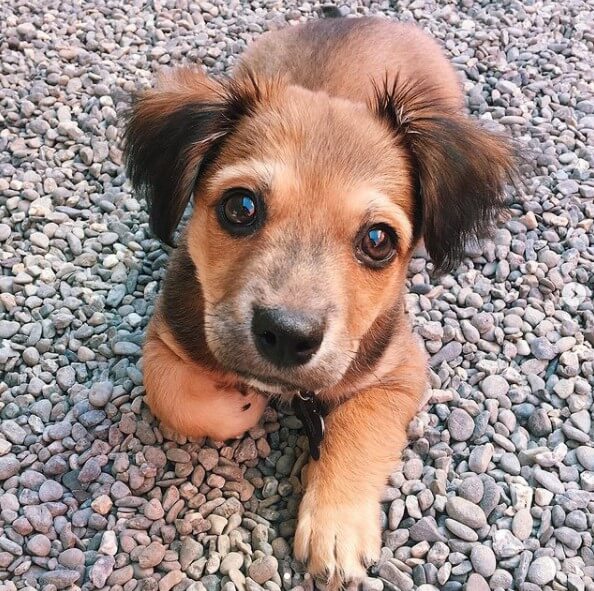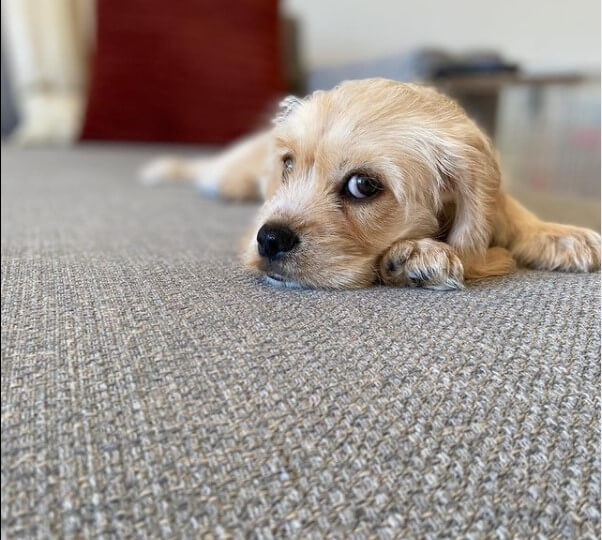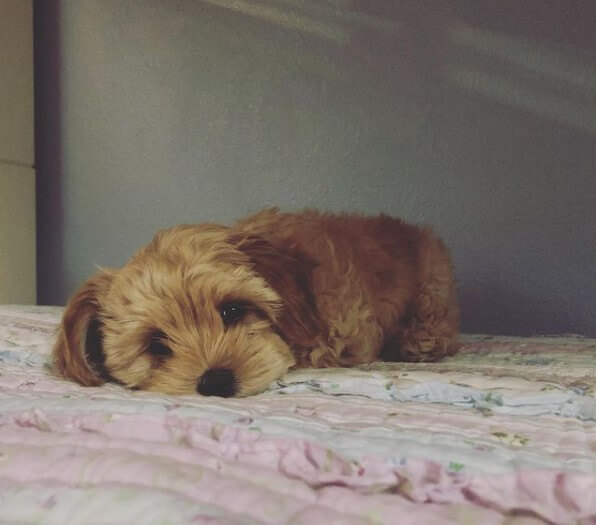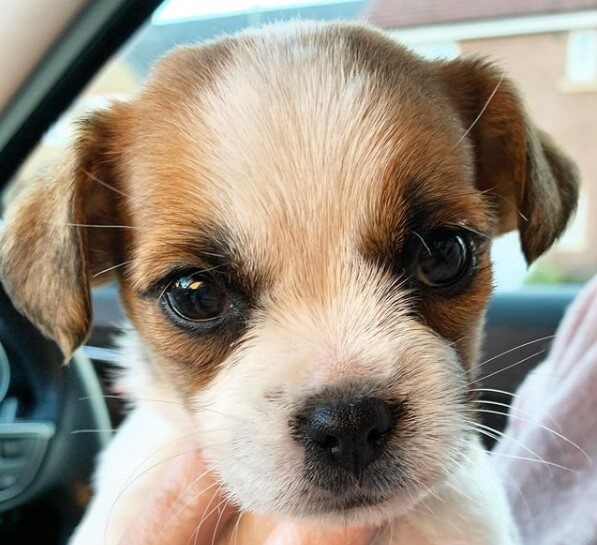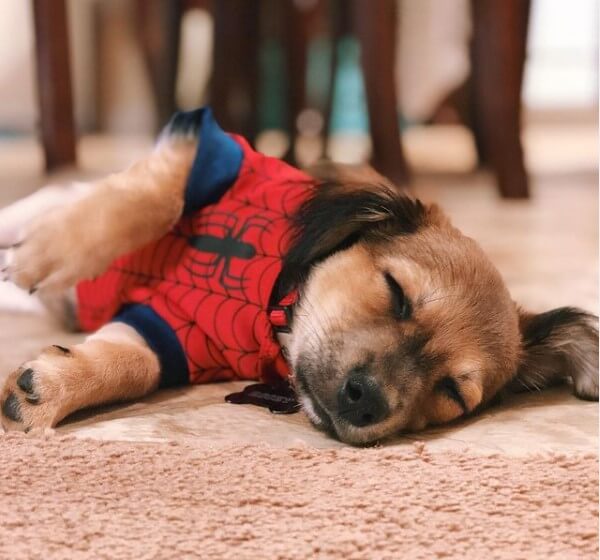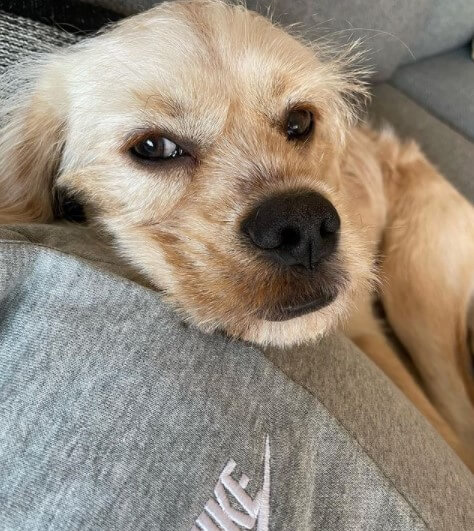This crossing appeared relatively recently, but it is already gaining popularity. When you take a mestizo into a family, it is important to understand how he will behave. These pets are funny, cheerful, and very loyal. It’s a great choice for novice dog owners – the Corkie is docile and easy to train. It seems that this is the kind of dog that will be glad to be with the owner of any age: it gets along well with children, adults, and the elderly.
Appearance
The size and appearance of your Corkie may be superior to one parent breed, or mixed. Let’s take a look at the appearance of the parents: lovely Cocker Spaniels and Yorkshire Terriers:
- There are English and American Cocker Spaniels – dogs of medium size, strong and agile. The build is strong, proportional, the limbs are medium, the muzzle is square, the ears are set low and covered with long wavy hair. The head is round, with a pronounced transition from the forehead to the eyes, the chest is voluminous, the tail is short, the coat is long.
The colors can be: dark red, light red, black and white, black, black and tan, and mixed. Male Cocker Spaniels stand 15 inches tall at the shoulder, and females are 14 inches tall. Males weigh 25 to 30 pounds, and females are 20 to 25 pounds in weight. - Yorkshire Terriers are small dogs, they are between 7 and 8 inches tall at the shoulder and their weight is around 7 pounds, with a slightly flattened muzzle, a pointed nose, and round eyes. The main distinguishing feature is the wool – it can grow incredibly long.
Typically a Corkie puppy is medium in size, about 12 inches tall at the shoulder, and weighing 10 to 20 pounds. Since both parent breeds have long, silky coats, you can expect your Corkie to have a soft coat of medium to long length.
Personality
As a mixed breed, the Corkie may have more or fewer character traits from their parent breeds. A Corkie can be sweet and gentle, like a Cocker Spaniel, or stubborn and independent, like a Yorkie. Typically Corkie lively, moderately energetic, and cheerful in temperament. Corkie can fit into any large or small family.
They love walking, playing with other dogs, fooling around, and generally enjoying various types of activity. They treat children well, they are always happy to play with them. They tolerate the road and travel well, but they do not tolerate loneliness and separation from loved ones very badly – this should be avoided if possible.
These cute dogs are very friendly and easily find a “common language” with other animals living in the house. In communicating with strangers, the individual traits and characteristics of each Corkie’s upbringing are manifested: some are ready to bark at any stranger, others – almost “kiss” a dog that runs up to him, especially a relative.
Training
Corkie generally lends itself well to training, and even needs it, as this will make the dog’s life more varied, develop its inner qualities and form a more correct character. In addition, the dog’s intellect also needs food. You need to educate your pet from childhood, and first of all, you need to socialize it. At 2-3 months, the baby needs to be taught to observe the subordination and norms of etiquette, as well as to overcome the fear of strangers. You need to set boundaries, train your pet using positive reinforcement techniques and have a loyal and loving dog in your home.
Care
Both the parent Corkie breeds have a silky and long coat. This way your Corkie puppy will have a soft, medium to long coat. Corkie needs constant and careful grooming of its silky coat. Bathing long-haired dogs should be once a week, short-haired – once every 2-3 weeks, comb, respectively, 2-3 times a day, and once every two days. All this is not very difficult to do on your own, but if a curly haircut follows the bathing, then you can entrust the whole complex of work to the grooming master. Before bathing the dog, it should be combed thoroughly, then placed in a bathroom with water at a temperature of 34-35 ° C. Place a rubber mat on the bottom of the tub to prevent the dog from slipping. It is better to wash your pet with a special “dog” shampoo. After the procedure, wrap the Corkie in a towel and take it to a warm room. When it dries a little, you should comb it again.
Your dog’s claws should be trimmed every 2-3 months. For those who are not confident in their professionalism, it is better to contact a grooming salon. They will do everything efficiently and carefully.
In the morning and evening, clean the corners of the dog’s eyes with a damp cloth or a special cotton swab. It is also suitable for cleaning your ears. Take your pet’s teeth brushing very seriously, otherwise, Corkie will develop tartar and tooth decay. This threatens that by the age of three his teeth will loosen, and by five he may remain completely toothless.
Feeding
You need to provide Corkie with the right nutrition to keep him energetic, strong, and healthy. Corkie can be fed with homemade food or purchased from specialty stores. Homemade food should include beef and chicken (raw but scalded with boiling water), offal, buckwheat, rice.
It is better to feed Corkie 2-3 times a day, not counting the symbolic delicacies that can be treated to him for dignified behavior. In addition, in the period from 3 to 7 months, when the skeleton is actively forming, it is recommended to mix grated chalk or 2-3 tablets of calcium lactate into the puppy’s food.
Health
What diseases can your Corkie inherit from your parents – Cocker Spaniels and Yorkshire Terriers? Both parent breeds have some known genetic diseases, so it is imperative that you choose a breeder who checks the health of his breeding herd and does not breed dogs with health problems.
Common diseases of Cocker Spaniels:
- eye problems – Spaniels are prone to a variety of eye problems, including progressive retinal atrophy, cataracts, glaucoma, and eye abnormalities;
- dysplasia of the hip joint;
- renal failure – it occurs at a young age (from 9 to 24 months) and is considered hereditary;
- Congenital sensorineural deafness is a condition that currently only occurs in colorful Cocker Spaniels. This condition is present at birth in affected puppies with hearing degeneration progressing to deafness by 4 weeks of age;
- dilated cardiomyopathy.
Common diseases of the Yorkshire Terrier:
- distichiasis;
- the absence of the formation of the pivot point of the second cervical vertebra, which leads to damage to the spinal cord, the disease is not associated with age, the signs begin with pain in the neck up to quadriplegia;
- Legg-Calve-Perthes syndrome;
- sliding kneecaps – a genetic defect inherent in the Yorkshire Terrier breed, but it can also be caused by accidental injury;
- portosystemic shunt, a congenital malformation of the portal vein;
the collapse of the trachea, caused by the progressive weakening of the tracheal walls, occurs in many ornamental breeds, especially Yorkies with a size less than average; - hypoglycemia.
Conclusion
Corkie makes a great pet for families with children. Their cute, compact appearance combined with their affectionate and cheerful temperament makes them an attractive choice for people looking for a small to the medium-sized family dog.
